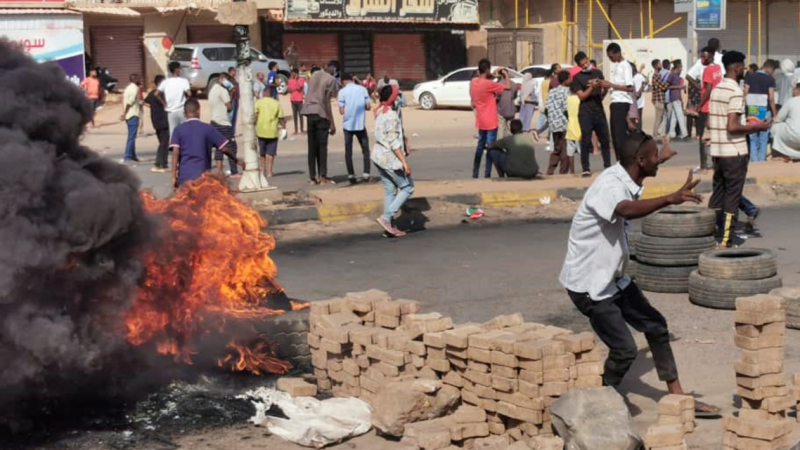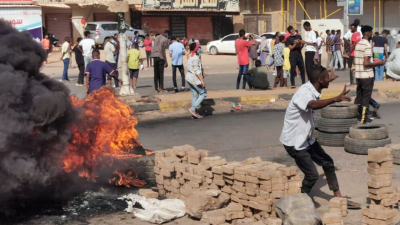Military and security leaders in Sudan confirmed today, Monday, after a meeting that included leaders from the army, security forces, police, and rapid support forces, that they will implement the state of emergency previously declared by First Lieutenant Abdel Fattah al-Burhan, following the dissolution of the government and the Sovereignty Council. They also indicated the start of the decision to dismiss state governments across the country.
"We will confront any security lapses," the leaders emphasized, asserting that they would tackle any attempts to disrupt public life or any "security breaches." The military and security bodies affirmed that Sudan's security is a red line.
This announcement came after the Sudanese army declared earlier today the dissolution of transitional institutions, the announcement of a state of emergency, and the formation of a new government following a campaign of arrests early this morning that targeted ministers, government officials, and politicians. Al-Burhan, who chaired the Sovereignty Council, stated in a speech broadcasted by Sudan’s official television that the army "took steps to preserve the objectives of the December revolution," which ousted President Omar al-Bashir, speaking of "correcting the course of the revolution."
He also announced a "general state of emergency throughout the country and the dissolution of the Sovereignty Council and the Council of Ministers" chaired by Abdullah Hamdok. Despite announcing the "suspension of work" in several articles of the "constitutional document" that was reached between military and civilian leaders who led protests against Bashir in 2019, he affirmed his commitment to this document and to completing the democratic transition until power is handed over to a civilian government.
He mentioned that "an independent national competencies government" would be formed to manage the country’s affairs until elections are held and power is transferred to an "elected government." It is worth noting that Sudan has experienced escalating tensions since last September between the military and civilian components that share transitional governance following the ousting of former president Omar al-Bashir due to widespread public protests over three years ago.




